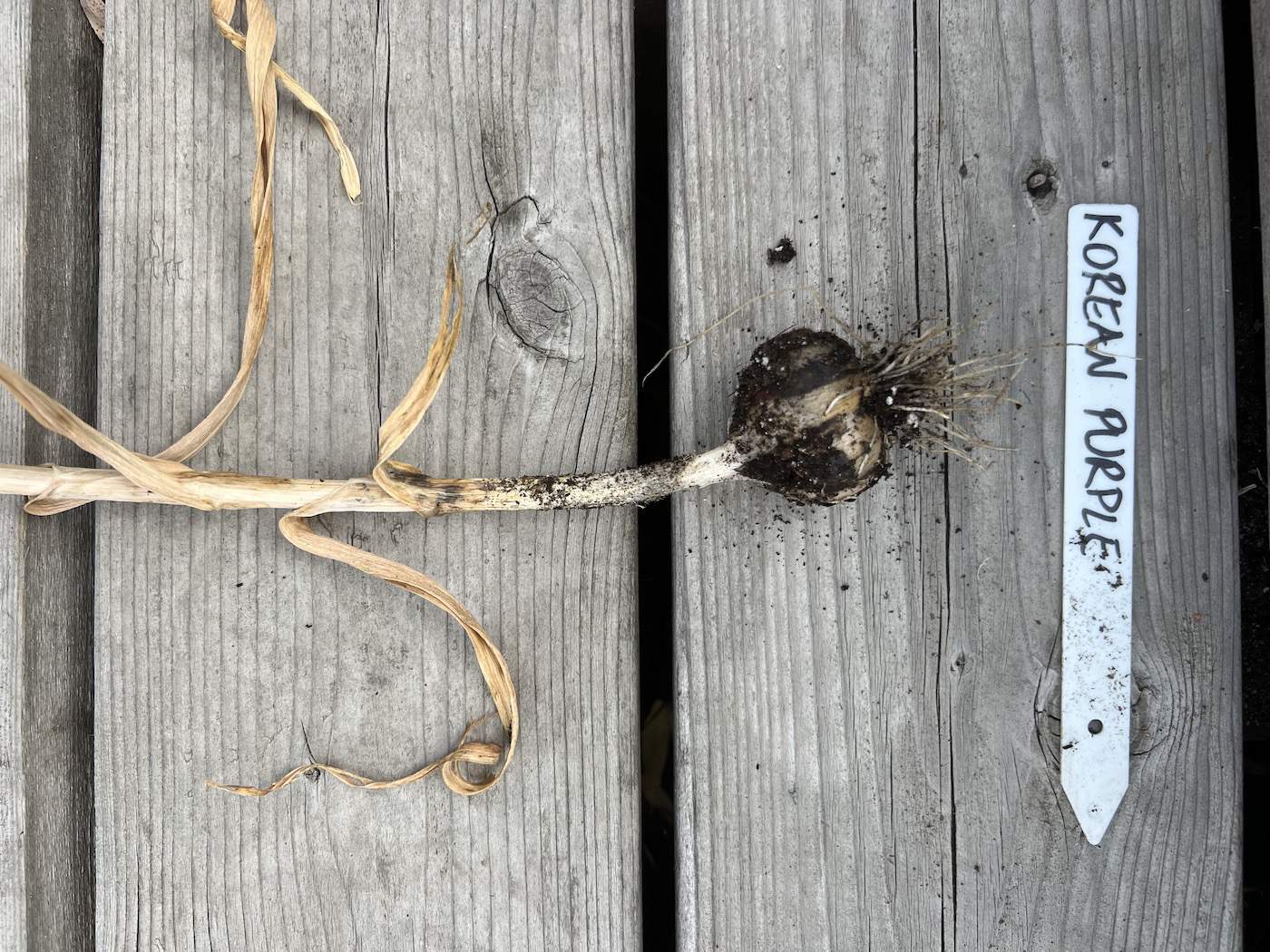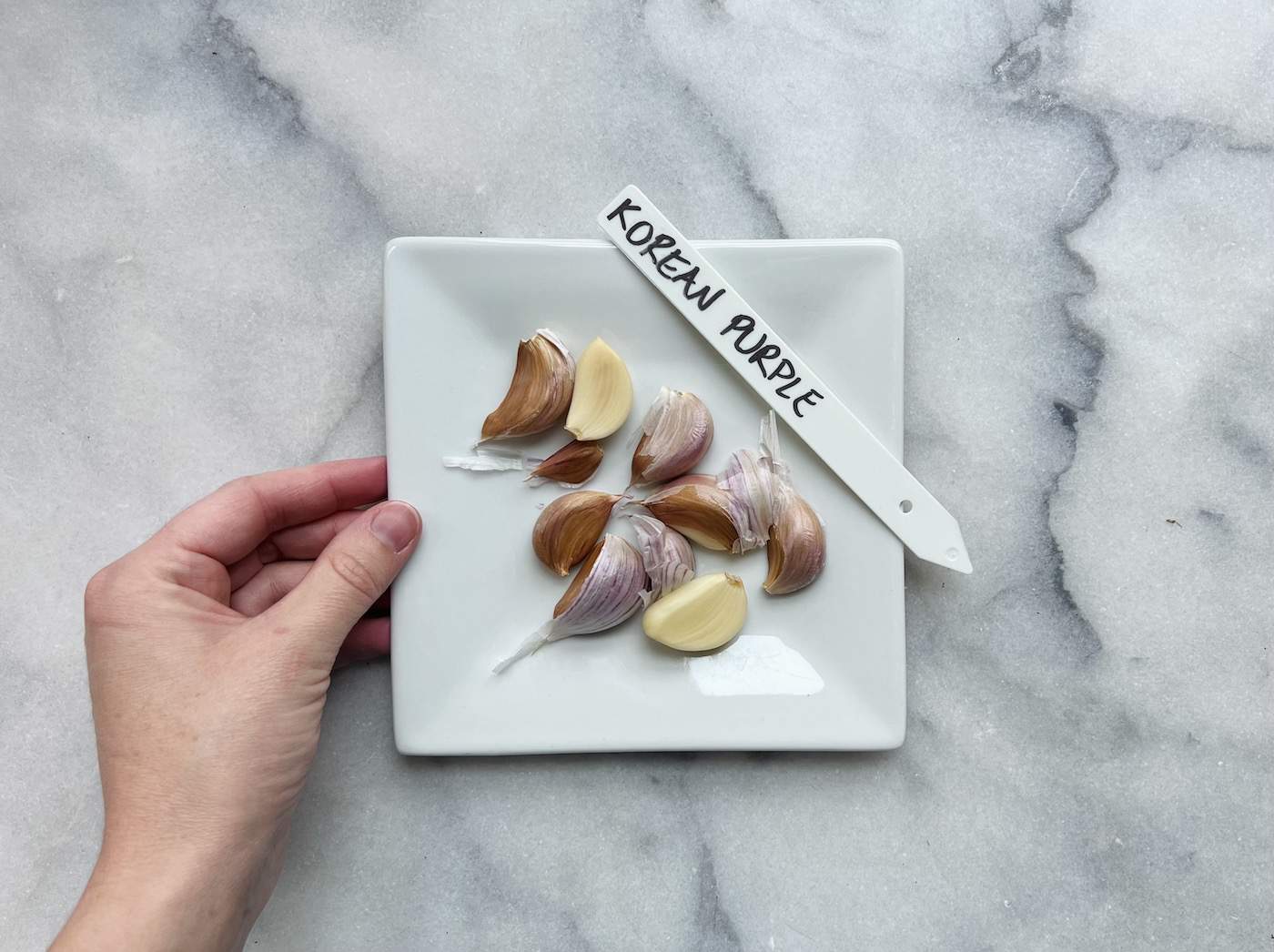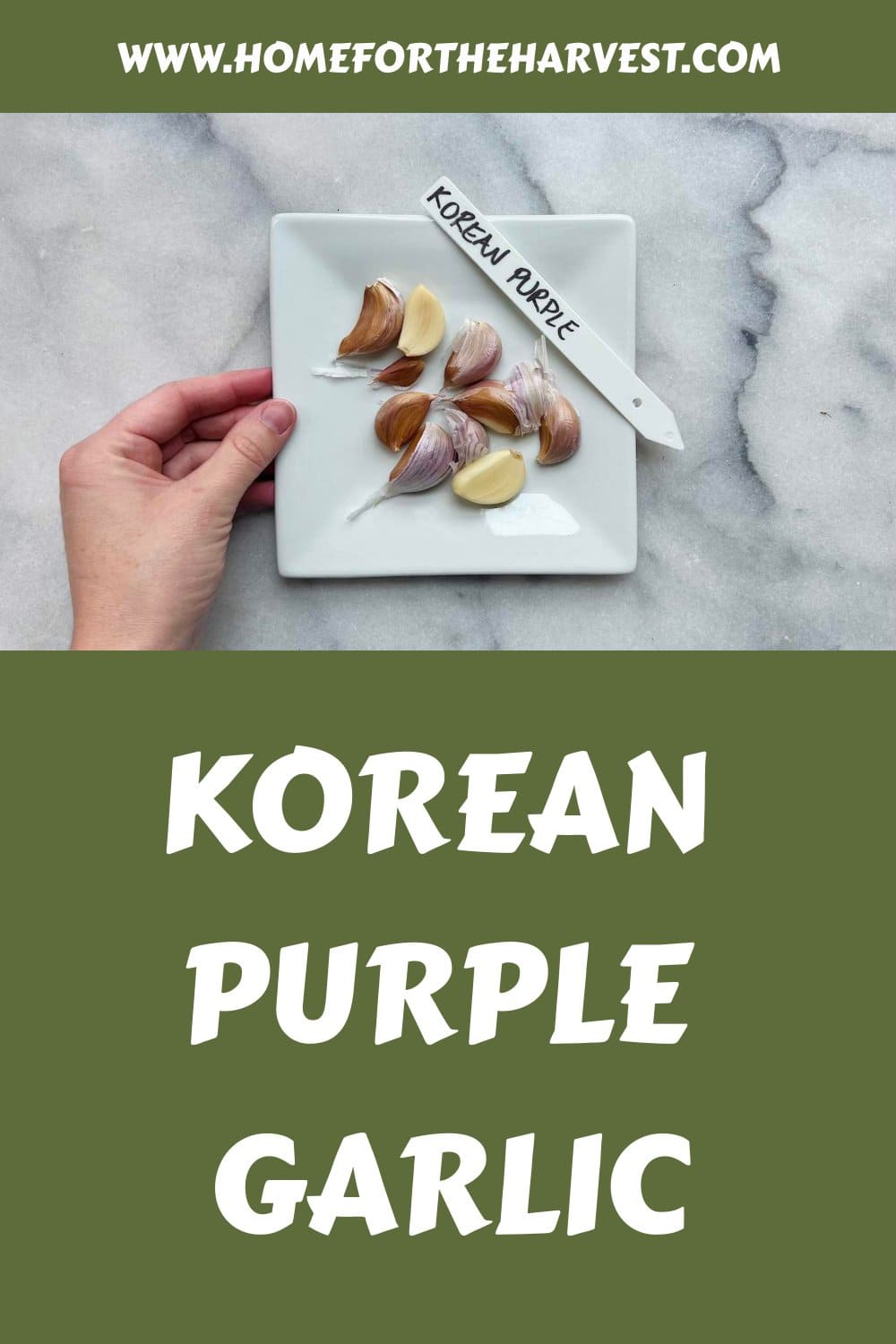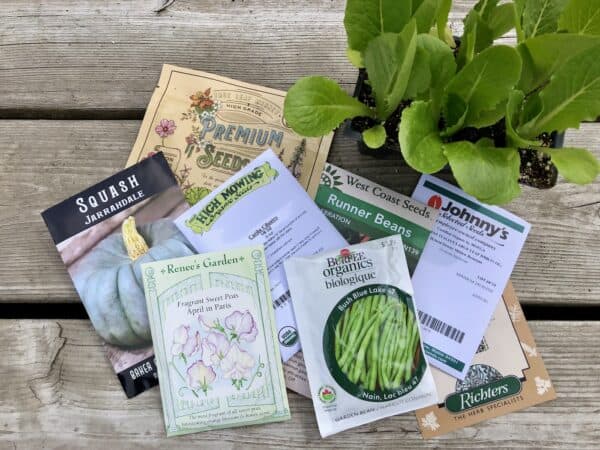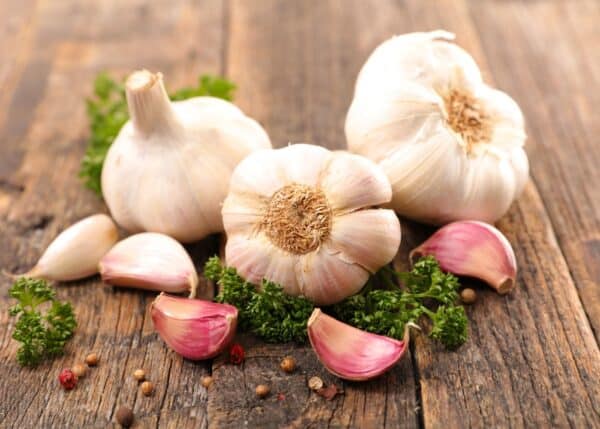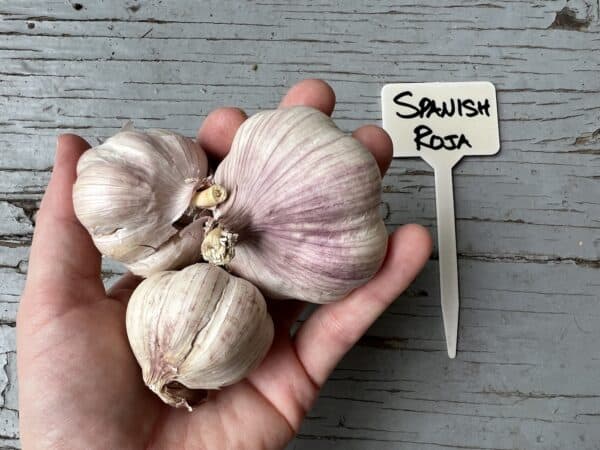Korean Purple garlic is a small rocambole hardneck variety from South Korea renowned for its excellent taste and adaptability to northern climates. Its bulbs, often containing 6-10 large cloves, are characterized by violet-marbled wrappers with pinkish-tan cloves, delivering a full-bodied spicy flavor with moderate heat. It is known for its easy-to-peel nature and impressive storage life of up to 6 months.
Introduction to Korean Purple garlic
Korean Purple garlic, originating from South Korea, is a distinguished rocambole hardneck variety. This cultivar is known for its well-rounded flavor, adaptability to northern climates, and reliable productivity.
This variety stands out alongside other garlic varieties, with its violet-marbled bulb wrappers that exhibit hints of subdued purple. The cloves have a pinkish-tan color and are protected by reddish-brown skins. Typically yielding between 6 to 10 cloves per bulb, these cloves are quite large and are known for their full-bodied, spicy flavor.

Notably, while the Korean Purple does pack a flavorful punch, its moderate heat ensures a balanced taste profile, making it a favored choice among chefs and home cooks alike. The ease with which it can be peeled and its commendable storage capability, lasting up to 5-6 months, further elevates its standing as a kitchen staple.
Flavor profile of Korean Purple garlic
Korean Purple garlic boasts a full-bodied, spicy flavor, distinguished by its moderate heat. It has a unique taste when compared to more common varieties. The flavor perfectly balances a robust garlic essence and a subtle warmth. This combination makes it ideal for those seeking pronounced garlic flavor with just a touch of spiciness.
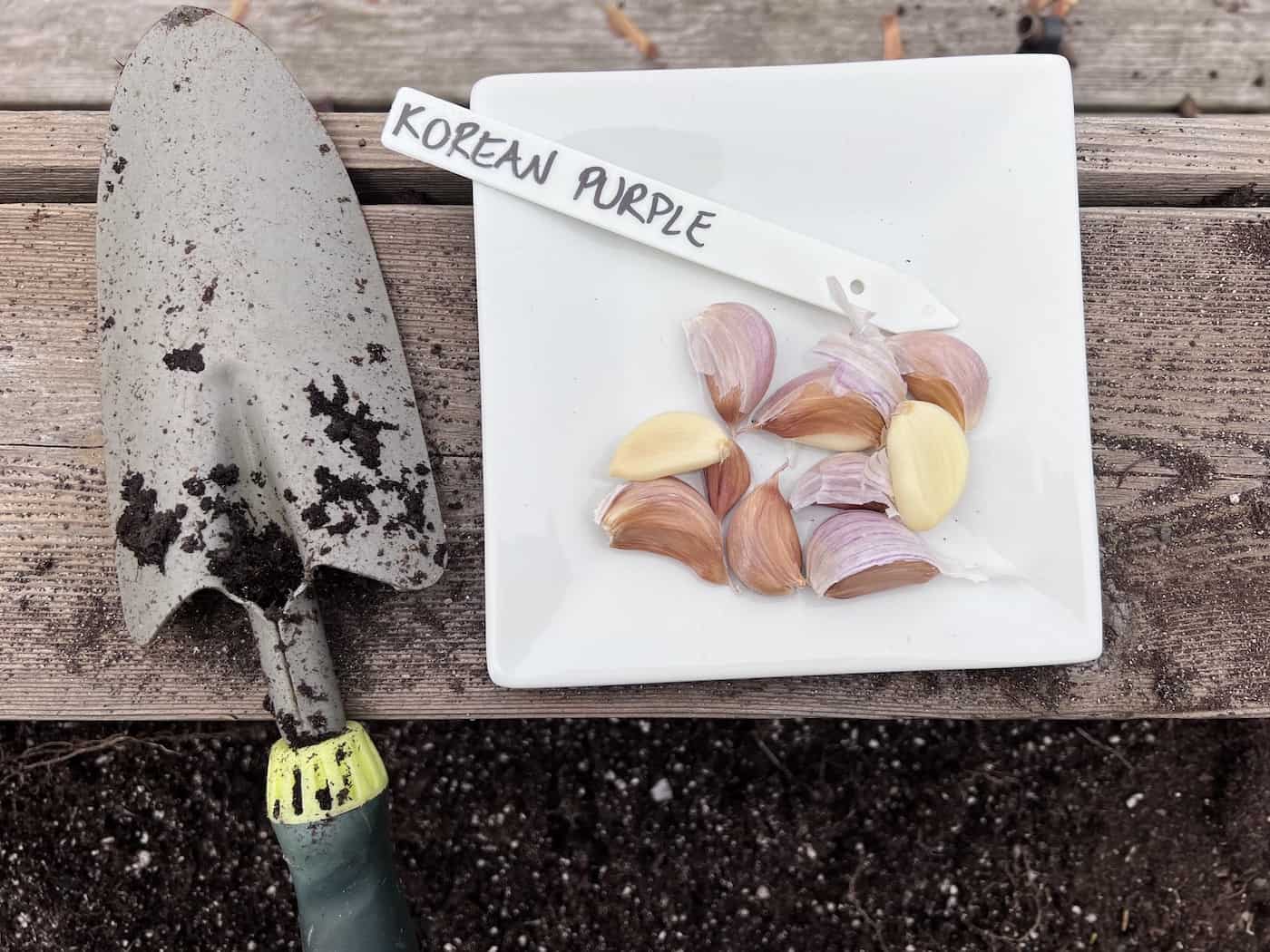
Growing Korean Purple garlic at home
Korean Purple is a hardy variety ideally suited to northern gardens. This hardneck type is not only known for its rich flavor but also its reliable production, thanks to its large, vigorous plants. If you’re keen on introducing this unique garlic variety to your garden, follow these steps to ensure a healthy crop:
- Timing: Korean Purple is one of the earliest garlic cultivars to be planted in the fall. This early planting allows the garlic to establish strong root systems before winter sets in, giving it a head start for the following growing season. Consequently, it’s also among the first to be harvested in the summer. To determine the best planting time, aim to get your cloves in the ground about 4-6 weeks before the first expected hard frost.
- Soil prep: Before planting, prepare the soil by ensuring it’s well-draining and fertile. Garlic prefers soil that’s rich in organic matter. Incorporating well-rotted compost or manure can enhance the soil’s texture and nutrient content. Also, consider testing the soil pH; garlic thrives in a pH range of 6.0 to 7.5.
- Planting: Separate the Korean Purple garlic bulb into individual cloves, ensuring you keep the papery husk intact. Plant the cloves pointy-end up, about 2-4 inches deep, and space them 6-8 inches apart in rows that are 10-14 inches apart. Given their wide leaves, this spacing allows the plants enough room to grow without competing for nutrients or sunlight.
- Care & maintenance: While garlic is relatively low-maintenance, keeping the soil consistently moist (but not waterlogged) during the growing phase is essential. Mulching with straw can help retain moisture, regulate soil temperature, and suppress weeds. As spring approaches, monitor for any signs of pests or diseases. If the garlic produces flowering stalks, known as scapes, consider removing them. This ensures the plant’s energy is directed towards bulb development.
- Harvesting: Since Korean Purple is among the earliest garlic varieties to mature, keep a close eye on its growth as summer approaches. When the lower third to half of the leaves turn brown, it’s typically time to harvest. Gently dig around the bulbs to lift them, avoiding any direct pulling, which might damage them.

Once you’ve harvested your Korean Purple garlic, make sure to cure it in a well-ventilated area, away from direct sunlight, for a few weeks. This not only enhances its flavor but also extends its storage life, ensuring you can savor its unique taste for months to come.
